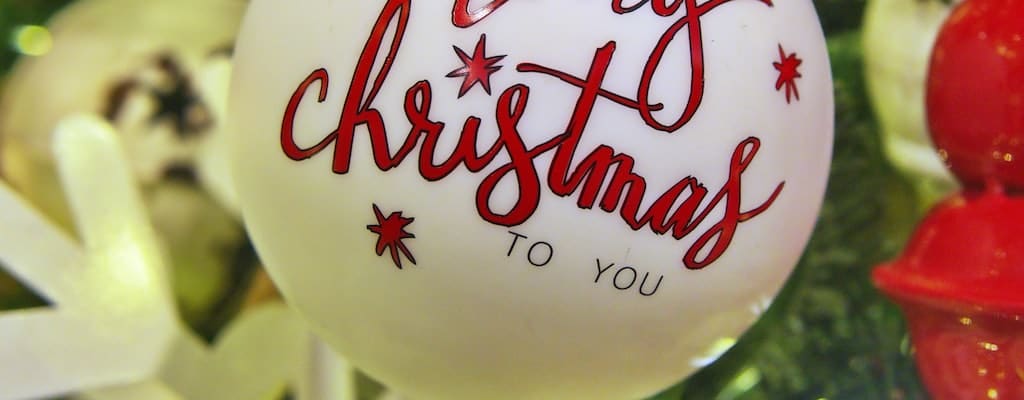Christmas came early: Idiom Meaning and Origin
What does ‘Christmas came early’ mean?
The idiom "Christmas came early" means that something positive or unexpected happened sooner than expected, bringing joy or excitement similar to the feeling of receiving gifts on Christmas day.

Idiom Explorer
The idiom "not a minute too soon" means that something happens or arrives at the exact time needed, often just before it would have been too late or after a long wait.
The idiom "glad tidings" refers to joyful news or information that brings happiness or excitement.
The idiom "eye-opener" means something that is surprising or enlightening, often leading to a change in perspective or understanding.
The idiom "eureka moment" refers to a sudden realization or discovery that solves a problem or brings about a significant understanding. It often occurs unexpectedly and is accompanied by a feeling of excitement or triumph.
The idiom "element of surprise" refers to the unexpected or unforeseen component or factor that creates a stunning or shocking outcome in a situation.
The idiom "easy come, easy go" means that something acquired quickly or easily is just as easily lost or taken away.
The idiom "easier said than done" means that something is much more difficult to accomplish than it sounds or appears to be.
The idiom "early bird" refers to a person who wakes up or starts something early in the morning. It suggests being prompt, diligent, and taking advantage of opportunities. The phrase is often used to praise someone's productivity or punctuality.
The idiom "early bath" means to have something come to an end prematurely or abruptly, usually in a negative or disappointing way.
An idiom meaning to outdo or surpass someone's accomplishment or action.
Deciphering the Mystery
Christmas came early is an idiom that describes a situation where something positive or desirable happens unexpectedly or earlier than expected. It conveys a sense of joy and excitement, indicating that the occurrence brings about feelings of anticipation and happiness.
The origins of this idiom are not well-documented, but it is believed to have emerged in the early to mid-20th century. It draws on the festive atmosphere and anticipation associated with the Christmas season, where gifts, surprises, and joyous celebrations are prevalent.
It's important to note that the idiom does not refer to the literal concept of Christmas coming earlier in the calendar year or before the actual holiday. Instead, it relies on the symbolic nature of Christmas as a time of joy and abundance.
When someone uses the idiom "Christmas came early," they are emphasizing the unexpected nature of the event or situation. It conveys delight and happiness, as if receiving a gift or experiencing something positive out of the blue.
This idiom is commonly used in a variety of contexts, both personal and professional. For example, someone might use it to describe receiving a promotion or a raise at work earlier than expected. It could also be used to express the excitement of finding a great deal or sale before a planned shopping trip.
Furthermore, "Christmas came early" can also be used metaphorically to describe situations that bring about happiness or good fortune. One might say it when unexpected good news arrives, such as a successful medical report or a positive outcome in a personal matter.
glad tidings is another idiom that can be related to the concept of "Christmas came early." Glad tidings refers to good news or messages that bring happiness and joy. It emphasizes the positive impact of unexpected events or situations, much like the idiom "Christmas came early."
bright and early is an idiom that can also be associated with the phrase "Christmas came early." Bright and early means early in the morning or at the earliest time possible. When the phrase "Christmas came early" is used, it often implies that the positive or unexpected event occurred at the beginning of a given time period, similar to the concept of bright and early.
Lastly, the idiom "can't wait" can also be interconnected with the idea of "Christmas came early." "Can't wait" conveys a strong sense of anticipation and excitement. When someone says "Christmas came early," they are expressing their inability to contain their excitement or anticipation for the positive event or situation.
The idiom "Christmas came early" is a figurative expression used to describe an unexpected and positive event or situation that brings joy and excitement. While its exact origins are unclear, it draws on the associations of Christmas with joy, giving, and anticipation. This idiom is widely used in American English and can be applied to various contexts to convey the sense of delight and happiness that accompanies unexpected occurrences. It serves as a reminder that life can bring unexpected moments of joy and abundance, just like the festive season itself.
Example usage
Examples of how the idiom "Christmas came early" can be used in a sentence:
- When I received an unexpected promotion at work, I felt like Christmas came early.
- After waiting for months, the release of my favorite book happened earlier than expected, and I thought Christmas had come early.
- When I saw my parents surprising me with a new car on my birthday, I exclaimed, "Christmas came early this year!"
More "Holidays" idioms



